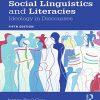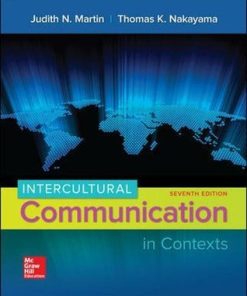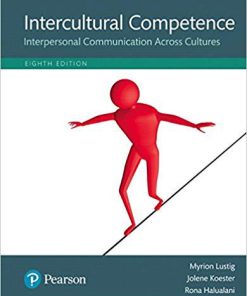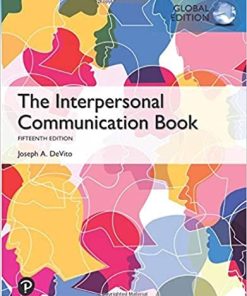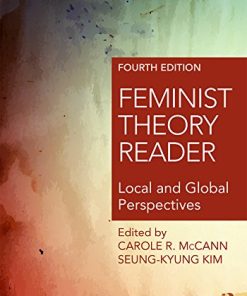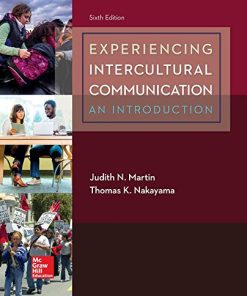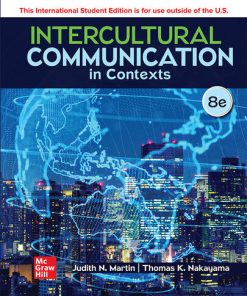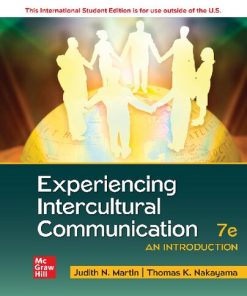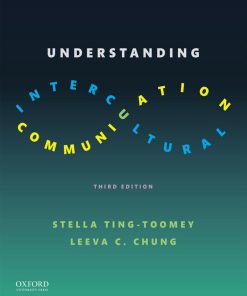The Global Intercultural Communication Reader 2nd Edition, (Ebook PDF)
$50.00 Original price was: $50.00.$25.00Current price is: $25.00.
The Global Intercultural Communication Reader 2nd Edition, (Ebook PDF) – Digital Instant Dowload.
The Global Intercultural Communication Reader 2nd Edition, (Ebook PDF) – Digital Instant Dowload.
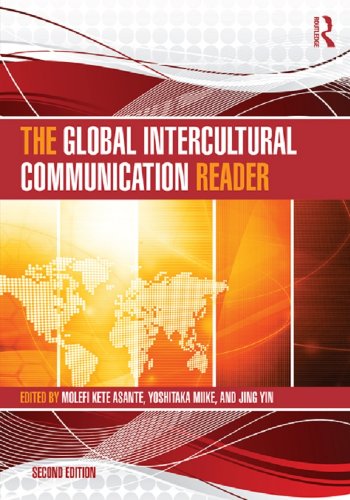
Product details:
- ISBN-10 : 0415521467
- ISBN-13 : 978-0415521468
- Author: Molefi Kete Asante
The Global Intercultural Communication Reader is the first anthology to take a distinctly non-Eurocentric approach to the study of culture and communication. In this expanded second edition, editors Molefi Kete Asante, Yoshitaka Miike, and Jing Yin bring together thirty-two essential readings for students of cross-cultural, intercultural, and international communication. This stand-out collection aims to broaden and deepen the scope of the field by placing an emphasis on diversity, including work from authors across the globe examining the processes and politics of intercultural communication from critical, historical, and indigenous perspectives.
The collection covers a wide range of topics: the emergence and evolution of the field; issues and challenges in cross-cultural and intercultural inquiry; cultural wisdom and communication practices in context; identity and intercultural competence in a multicultural society; the effects of globalization; and ethical considerations. Many readings first appeared outside the mainstream Western academy and offer diverse theoretical lenses on culture and communication practices in the world community. Organized into five themed sections for easy classroom use, The Global Intercultural Communication Reader includes a detailed bibliography that will be a crucial resource for today’s students of intercultural communication.
Table contents:
Part I The Emergence and Evolution of Intercultural Communication
1. Notes in the History of Intercultural Communication: The Foreign Service Institute and the Mandate for Intercultural Training
2. The Evolution of International Communication as a Field of Study: A Personal Reflection
3. The Centrality of Culture in the 20th and 21st Centuries
4. Theories of Culture and Communication
5. Mapping Cultural Communication Research: 1960s to the Present
6. Sojourning Through Intercultural Communication: A Retrospective
Part II Issues and Challenges in Cross-Cultural and Intercultural Inquiry
7. Afrocentricity: Toward a New Understanding of African Thought in the World
8. The Asiacentric Turn in Asian Communication Studies: Shifting Paradigms and Changing Perspectives
9. Indigenous and Authentic: Hawaiian Epistemology and the Triangulation of Meaning
10. The Four Seasons of Ethnography: A Creation-Centered Ontology for Ethnography
11. Encounters in the Third Space: Links Between Intercultural Communication Theories and Postcolonial Approaches
12. Thinking Dialectically About Culture and Communication
Part III Cultural Wisdom and Communication Practices in Context
13. Nommo, Kawaida, and Communicative Practice: Bringing Good Into the World
14. Ubuntu in South Africa: A Sociolinguistic Perspective to a Pan-African Concept
15. Communication and Cultural Settings: An Islamic Perspective
16. The Functions of Silence in India: Implications for Intercultural Communication Research
17. Language and Words: Communication in the Analects of Confucius
18. The Two Faces of Chinese Communication
Part IV Identity, Multiculturalism, and Intercultural Competence
19. Popular Culture and Public Imaginary: Disney vs. Chinese Stories of Mulan
20. The Mexican Diaspora: A Critical Examination of Signifiers
21. The Masculine–Feminine Construct in Cross-Cultural Research: The Emergence of a Transcendent Global Culture
22. Encounters With the “Other”: Personal Notes for a Reconceptualization of Intercultural Communication Competence
23. Applying a Critical Metatheoretical Approach to Intercultural Relations: The Case of U.S.–Japanese Communication
24. Superheroes in Shanghai: Constructing Transnational Western Men’s Identities
25. Beyond Multicultural Man: Complexities of Identity
26. Moving the Discourse on Identities in Intercultural Communication: Structure, Culture, and Resignifications
Part V Globalization and Ethical Issues in Intercultural Relations
27. Ethnic Discourse and the New World Dysorder: A Communitarian Perspective
28. The Hegemony of English and Strategies for Linguistic Pluralism: Proposing the Ecology of Language Paradigm
29. Languages and Tribal Sovereignty: Whose Language Is It Anyway?
30. Development and Communication in Sri Lanka: A Buddhist Approach
31. Global Village vs. GandhianVillages: A Viable Vision
32. The Context of Dialogue: Globalization and Diversity
You may also like…
dictionaries & phrasebooks
Intercultural Communication in Contexts 7th Edition Judith N. Martin
Uncategorized
(eBook PDF) Intercultural Competence: Interpersonal Communication Across Cultures 8th Edition
dictionaries & phrasebooks
Intercultural Communication in Contexts 8th Edition Judith Martin
Politics & Philosophy - Cultural
Experiencing Intercultural Communication: An Introduction 7th Edition Judith N. Martin
dictionaries & phrasebooks
Understanding Intercultural Communication 2nd Edition Stella Ting-Toomey


